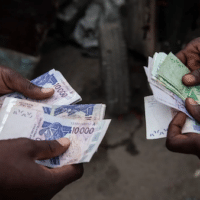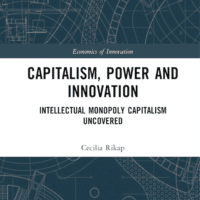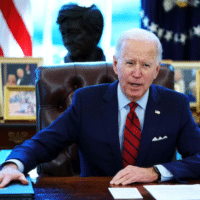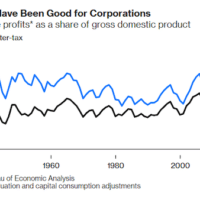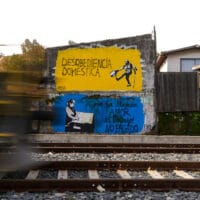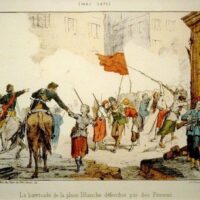-
African financial independence is a threat to imperialism
African leaders had come to recognize the various factors that hinder the continent’s development and seriously jeopardize the future of its peoples. The Abuja Treaty was put in place to increase economic self-reliance, promote self-sustained development, and raise the living standard of African peoples.
-
Kenya in the Digital Finance Revolution with Sibel Kusimba
Money on the Left speaks with Sibel Kusimba, Associate Professor of Anthropology at University of South Florida, about her work on mobile money and digital finance in Kenya. In her recently published book with Stanford University Press titled Reimagining Money: Kenya in the Digital Finance Revolution, Kusimba both theorizes and critiques Kenya’s thriving M-Pesa mobile phone-based payment system as a constitutive component of Kenyan social life.
-
Developing countries desperately need COVID-19 financing
International cooperation must ensure significantly more official foreign exchange financing to supplement innovative domestic financing for urgently needed spending for relief, recovery and reform.
-
Crypto crackdown: only the beginning?
The cost and time involved in validating Bitcoin transactions makes it unusable in retail transactions. So they will always be foreign currencies, where you have to trade in and out of them into a real world currency.
-
As China pursues a green future, Bitcoin miners feel the squeeze
Chinese cryptocurrency businesses mine two-thirds of all Bitcoin. But for how long will they remain welcome in the country?
-
Patents versus the People
ON October 2, 2020, even before any vaccines against COVID-19 had been approved, India and South Africa had proposed to the WTO that a temporary patent waiver should be granted on all such innovations.
-
Biden budget would send $1.3 billion more to Israeli military than to Global climate programs: Analysis
A group of anti-war veterans said President Joe Biden’s spending priorities indicate that he thinks “preserving apartheid is more important than fighting climate change.”
-
An unsustainable burden of debt afflicts the peoples of Sub-Saharan Africa. Part 5
In Sub-Saharan Africa, where health spending and human development levels are in a dramatic state, there is a stronger case than ever for unilateral suspensions of debt payments based on arguments recognized in international law; such as state of necessity and fundamental change of circumstances.
-
Latin America and the Caribbean are facing a serious debt crisis Part 4
The series continues with analyses of how indebtedness developed in other regions of the Global South.
-
Intellectual monopoly capitalism and its effects on development
What is new with contemporary (global) leading corporations? If gigantic monopolies are a repeated phenomenon in capitalism’s history, why all the fuss we see every day regarding high concentration?
-
Biden’s package and its pitfalls
U.S. President Joe Biden’s $1.9 trillion rescue package is one of the most ambitious measures to revive the U.S. and, with it, the world economy.
-
Ecuador’s poisoned loans from the World Bank and the IMF
Ecuador provides an example of a government which officially decided to investigate the process of indebtedness so as to identify illegitimate debt and suspend its repayment.
-
Time to put the spotlight on corporate taxes
A battle is slowly brewing in Washington DC over whether to raise corporate taxes to help finance new infrastructure investments.
-
If the minimum wage had increased as much as Wall Street bonuses since 1985, it would be worth $44 today
The 2020 bonus pool for 182,100 securities industry employees could pay for more than 1 million jobs paying $15 per hour for a year.
-
What you call love is unpaid work
Women around the world spend an average of four hours and twenty-five minutes per day on unpaid care work, while men spend an average of one hour and twenty-three minutes per day on the same kind of work.
-
Review – ‘Bank Job’
Jake Woodier reviews a new documentary film that brings heist aesthetics to a story of debt activism
-
Who are the 10 biggest pandemic profiteers?
One year after the COVID-19 pandemic began, U.S. billionaires have made out like gangbusters at the expense of workers.
-
The Paris Commune of 1871, banks and debt
150 years ago, on 18 March 1871, the Paris Commune was born.
-
Prioritise pandemic relief, recovery: No time for debt buybacks
Developing country governments are being wrongly advised to use their modest fiscal resources to pay down accumulated debt instead of strengthening pandemic relief and recovery. Thus, debt phobia risks deepening and extending COVID-19 recessions by prioritizing buybacks.
-
We have to change our suicidal ways and reconcile with nature to tackle climate crises and pandemics
Every day, entrepreneurs in Brazil cut down more of the Amazon to produce cheap soybeans for animals in Europe and America. Vietnam, Indonesia and Malaysia tear up their forests to produce cheap coffee and palm oil for the world.

